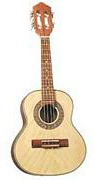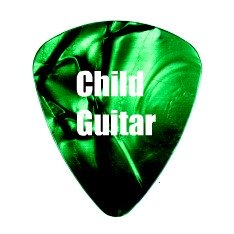|
History of Ukulele
The history of ukulele is the history of a people in transition and the celebration of a way of life. It is a love story, and one that has been told and re-told so many times that some people no longer listen and dismiss it as just another interesting coincidence in the world of musical instruments. The roots of the ukulele rest deep in the Hawaiian Islands during a time when European sailors and immigrants were threatening a way of life in a culture that had for centuries been isolated thanks to its location far away from any mainland culture.
Popularization of the UkuleleThe result was the ukulele, and this small, four-stringed instrument which looks startlingly similar to a miniature guitar, quickly spread in popularity. In fact, the popularization of ukulele music began during the Panama Pacific International Exposition in 1915 in San Francisco. It was here that a ukulele ensemble from Hawaii (sponsored by the Royal family nonetheless) was featured. Their music was an instant hit and from then on, people couldn’t seem to get enough of it. It wasn’t until the United States had taken control of the Hawaiian Islands as a territory, however, that the history of ukulele music began to spread around the globe.The featured exposition ensemble was the beginning of a world-wide love affair with Hawaiian music; music that became quite popular with vaudeville performers and even began to find its way into the music of the movies. The 1920’s saw the ukulele become a featured instrument in many a jazz band thanks to its portability and upbeat sound. Ukulele TodayOnce the era of rock and roll came around the ukulele decreased in popularity, though it never disappeared altogether. And jazz songs right up into the 1960s used the ukulele to spice up their sound. But with the increasing popularity of rock music, the history of ukulele music takes a downturn until the 1990’s when an interest in the little instrument began to pick up again.One of the biggest reasons for the re-emergence of the ukulele as a popular instrument is due, in part, to Israel Kamakawiwo’ole (Over the Rainbow) Revisiting HistoryIn Hawaii, the history of ukulele – especially the history of the name itself – is disputed. Some believe that the name means “jumping flea” and can be traced back to the quick fingered strumming needed to play the instrument. But according to Queen Lili’uokalani who is the last of the Hawaiian royal family, the name “ukulele” means “the gift that came here” and is literally translated from the Hawaiian words “uku” (meaning gift) and “lele” (meaning to come). Regardless of the true history of ukulele or the true meaning of the name, it truly is a gift, and one that will continue to keep giving for generations.More Ukulele Links
Return from History of Ukulele to Ukulele Sizes
|











